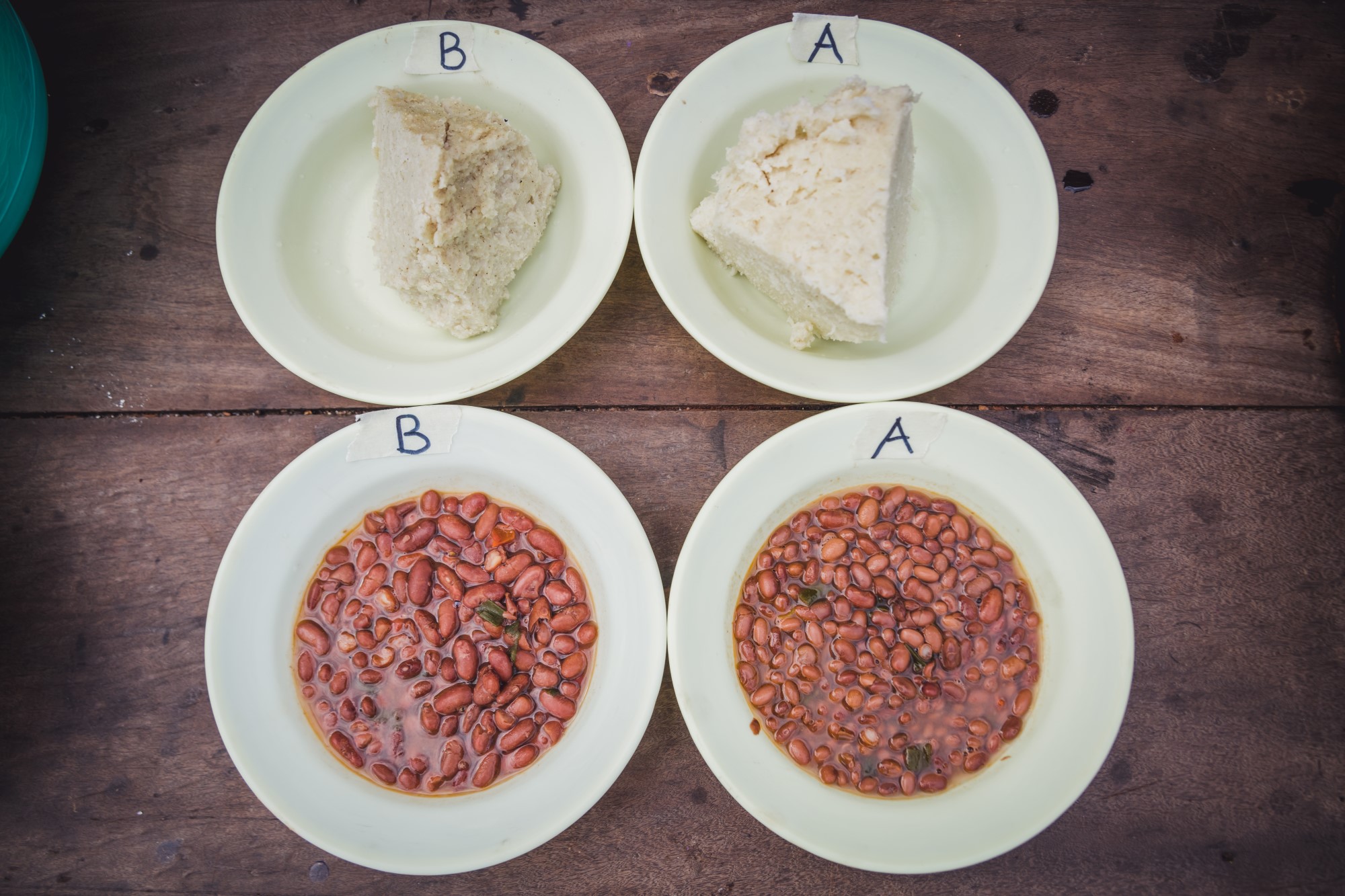
Smallholder farmers are both producers and consumers, often growing what they eat. That said, can we accelerate varietal turnover by increasing farmers’ interest in consuming a new variety and indirectly increase their interest in producing that variety? A team of researchers in the Behavioral Intelligence Work Package of the CGIAR Initiative on Market Intelligence has set out to answer that question across five countries by studying the effects of cooking demonstrations, blind tastings of local versus new, improved varieties, and the provision of trial packs of the end product (i.e., flour or grain). Initial experiences with the implementation of this intervention in Kenya can be found in this blog. A consortium including the Kenya Agricultural and Livestock Research Organization (KALRO), the International Food Policy Research Institute (IFPRI), seed companies, and ACRE Africa, a service provider focused on improving farmers’ agricultural risk management, implemented consumer-targeted interventions to increase adoption of new maize and bean varieties across seven counties.
After the cooking demonstrations, women expressed their preference for the new maize varieties because of the shorter cooking time and because they use less flour to prepare a similar amount compared with their current varieties. Men preferred the taste of local maize varieties, but the cooking demonstrations sparked dialogues between men and women on the need to switch to improved varieties. Both women and men indicated after the blind tasting that they preferred the new bean varieties; women were particularly more appreciative of their shorter cooking time. This shows that production and consumption decisions are inextricably linked, and consumer considerations should be at the core of not only breeding programs but any effort to accelerate varietal turnover. Stay tuned to future bulletins for the results of an ongoing randomized controlled trial that will quantify the effects of these interventions on adoption.